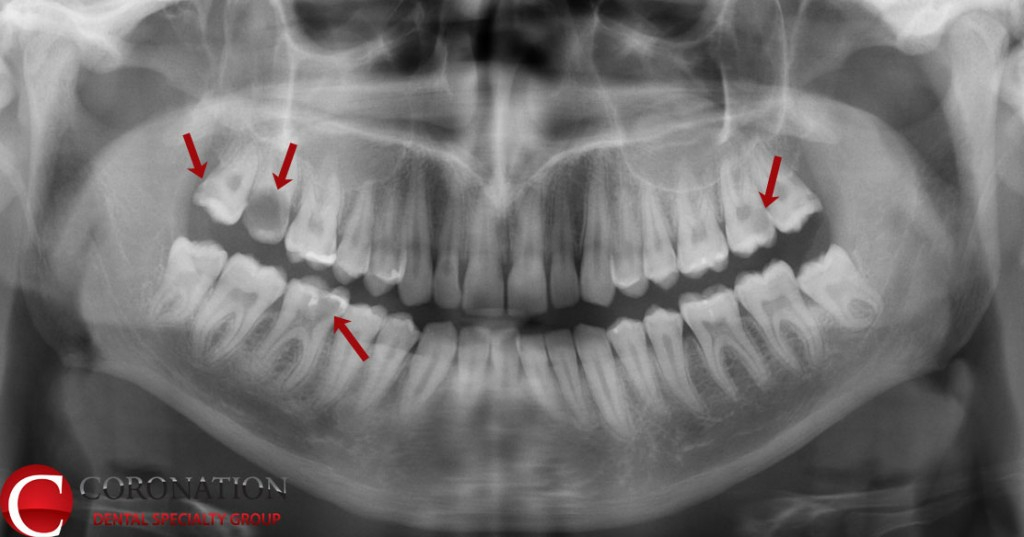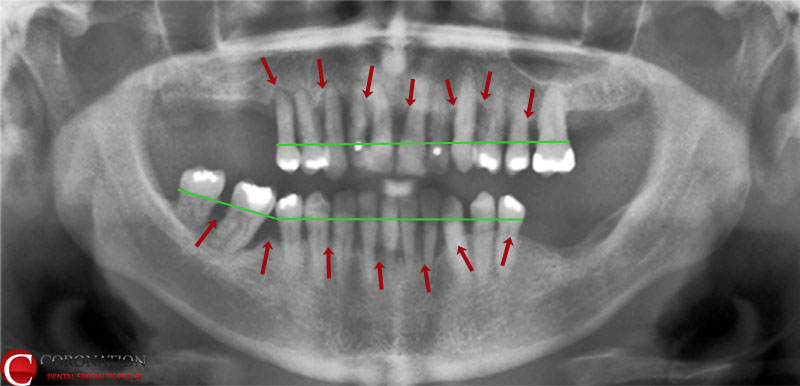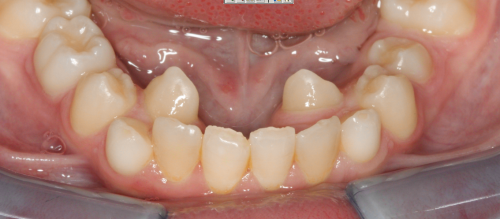Services > Oral and Maxillofacial Surgery > Dental / Tooth Extractions
There are many reasons that teeth need to be extracted. By far, the two most common problems are cavities, and gum disease.
Cavities arise when bacteria on teeth convert sugars into acid. This acid eats away at the tooth structure creating a cavity. While some cavities can be repaired with a filling, cavities that extend into the pulp of the tooth require either a root canal treatment or extraction.

Cavities on teeth show up as a black spot (arrows). When decay is very large, the tooth can sometimes be saved with a root canal. However, sometimes the decay is so extensive that the tooth must be extracted.
In some cases, cavities extending to the pulp will cause infection and abscess, which can lead to pain and swelling. In addition to root canal treatment or extraction, additional surgical and medical procedures may be required to heal the infection and prevent it from spreading throughout the body.
Periodontal (gum) disease can arise when chronic inflammatory insults arise in the gums around the teeth. Because teeth are supported and held strong by the gums and bone, severe periodontal disease results in loss of the supporting structure of the tooth. While some periodontal disease can be treated with scaling and root planing, or with pocket reduction surgery, dental extraction is sometimes the only course of action remaining in severe cases of gum disease.

An example of hopeless periodontal bone loss. There is significant loss of bone (red arrows), compared to a healthy level of bone (green line). Due to the loss of bony support, most of these teeth cannot be saved.
Teeth may sometimes be extracted in preparation for orthodontics, if there is not enough space to fit them properly. Premolars are the most commonly extracted teeth in preparation for orthodontics.

There is insufficient space in this lower jaw to fit all of the teeth. In this case extractions are needed to create space for the teeth to be aligned.
Teeth may sometimes be extracted for other reasons. If a tooth has been traumatized in an accident, it can sometimes no longer be saved. Similarly, biting on hard foods or on a weak filling may cause a tooth to fracture in a way that your dentist cannot restore.
Should you decide to see us for your dental extraction, a dental specialist will speak with you regarding the viability of the tooth, and whether it requires removal. In some cases, extractions can be accomplished in one visit. However, more complicated situations or those requiring sedation will likely require multiple visits. Your doctor will discuss the treatment options with you at your first appointment. Please Contact Us and we would be happy to speak with you further.